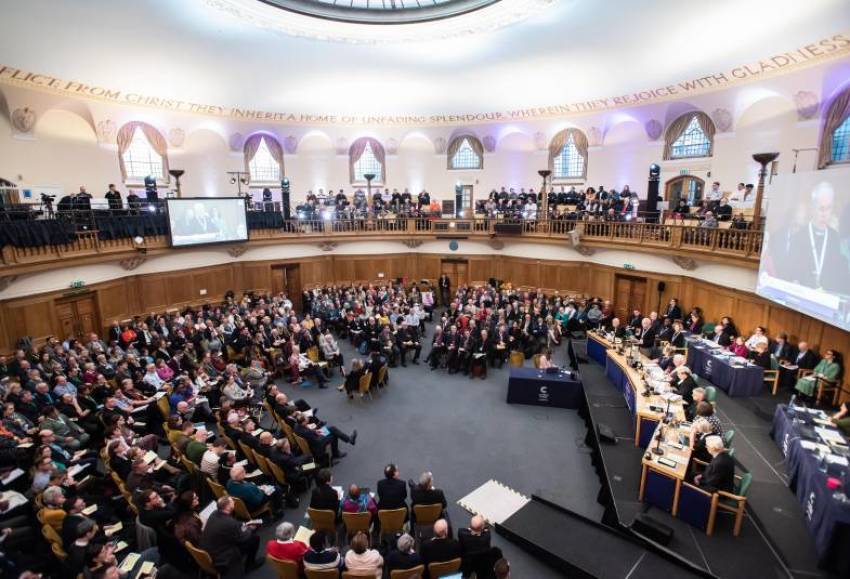Church of England votes to proceed with trial blessing services for same-sex couples

The Church of England has decided to proceed with trial blessing services for same-sex couples. This decision, made during the General Synod, marks a significant shift in the denomination's stance on same-sex relationships.
The Bishop of Oxford proposed the amendment for these trial services, which narrowly passed in the House of Laity by one vote, the U.K.-based group The Christian Institute noted, adding that the House of Bishops supported the motion 23 to 10, with four abstentions. The House of Clergy also voted in favor, 100 to 93, with one abstention. The House of Laity also voted in favor, but by 104 to 100, with no abstentions.
Originally, the House of Bishops proposed that these services be formally authorized under a two-year process, requiring a two-thirds majority in each of the three Houses. However, the approval allows for the use of “prayers of blessing” in existing services as early as December, while the bishops discuss implementation.
The Rev. John Dunnett, national director of the CofE Evangelical Council, expressed disappointment with the decision, stating it departs from a biblical understanding of sex and marriage. CEEC plans to announce provisions for orthodox Evangelicals and aims to ensure their continued presence in the denomination.
The Anglican Network in Europe, the Anglican Convocation in Europe and the Anglican Mission in England had previously urged the House of Bishops to adhere to biblical teachings on sexual conduct. They described the decision as offensive to God and a distortion of His message.
At the Synod, Christian Concern’s Benjamin John criticized the CofE's move, calling it a rebellion against God’s Word. Rebecca Bensted from the Christian Legal Centre, the legal arm of Christian Concern, highlighted the lack of transparency and legal process in the proposal.
The rector of Buckingham, the Rev. William Pearson Gee, emphasized the importance of adhering to the teachings of Jesus and the apostolic church. “To say that a practice is sinful is not opposed to a Savior who came to save us from sin, is all of our discovery that we are sinful — and that it is pastoral to be told how, and to be called to change.”
Charlie Skrine, the rector of All Souls’ in London, pointed out the contradiction between the CofE’s doctrine on marriage and the proposed pastoral step.
The Rev. Neil Barber from Derby and the Rev. Ian Paul from Southwell and Nottingham raised concerns about the perceived abandonment of doctrine and the need for integrity and transparency. “The watching world sees that the Church of England is dumping its doctrine, even though we assert that legally, we are not. But they know that we are not doing nothing. They see that we are changing doctrine,” he reiterated.
Anna De Castro from Sheffield called for consistency between the confessed and lived doctrines. Daniel Matovu expressed concerns about the lack of a clear timescale for the motion passed.
The CEEC said it remains committed to working toward a permanent structural settlement that secures orthodox life and witness within the denomination. They continue to uphold the doctrines of the Church of England as expressed in the 39 Articles, the Book of Common Prayer, and the Ordinal.



























